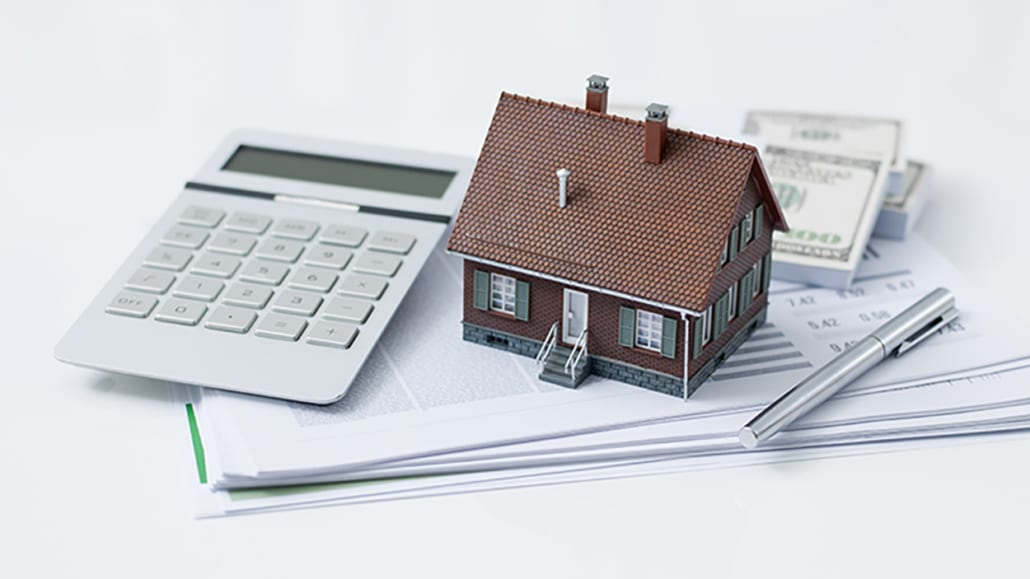What does mortgage interest deduction mean and how does it work?
One of the advantages, if you own (or are going to buy) a house, is that you are entitled to mortgage interest deduction.
In short, it means that you can deduct the interest you pay on your mortgage debt from your income. Of course, that’s very nice, but you do have to meet certain conditions.
These conditions and more important information will be explained below.
Basic conditions for mortgage interest deduction
- The mortgage you take out is intended for the purchase, improvement, or maintenance of a home that is your primary residence This debt is called the ‘mortgage debt for own home’ or ‘owner-occupied home debt’. The interest on the financing of a second home or on a loan for other purposes, unfortunately, is not deductible.
- Since 2001, mortgage interest is deductible for a maximum of 30 years. For every higher mortgage you wish to take out, this term applies anew for the amount that you borrow additionally. As a result, there can be different end dates.
- Are you going to sell your house? Then, if you buy a new home within 3 years, you must reinvest the surplus value that is released from the sale of the old house. If you don’t do this and take out a loan equal to the purchase price of the new home, then you are not entitled to interest deduction on the mortgage for the amount of that surplus value. Therefore, make sure you always reinvest any potential surplus value back into your home.
Extra conditions for mortgage interest deduction
- In 2013, the conditions for mortgage interest deduction were also tightened. Since then, you can only deduct the interest on new owner-occupied home debts if the loan is fully repaid within 360 months (30 years) at a minimum on an annuity basis. This obligation must be included in the loan agreement, which will likely be the mortgage.
- Additionally, the repayment obligation must be met annually. Agreements that go beyond an annuity repayment schedule, such as a linear repayment, are also eligible for mortgage interest deduction. More information on these forms will follow later on.
- If you take out a loan for your own home from a person or institution, such as a family member or a foreign bank, that is not required to report this information to the tax authorities? Then you must provide the relevant details about your loan to the tax authorities yourself. You report the taking out or changing of the loan through the income tax return for the year in which the change or the taking out of the loan occurred.
- If a mortgage loan does not meet the requirements or if the repayment obligation is not adhered to, then the right to mortgage interest deduction is forfeited.
More information about the conditions can be found at the tax authorities and the central government.
How much can you actually deduct?
Unfortunately, you can no longer deduct as much as you could a few years ago, but it is still very interesting to do so.
The deductible part of the mortgage interest deduction has been rapidly reduced in recent years, decreasing from 52% to just 36.93%. This was initially going to be done in small steps, with only a 0.5% reduction per year.
But in the coalition agreement of the last Rutte cabinet, it was decided to accelerate the reduction of the mortgage interest deduction from 2020 to 36.93% in 2023. That is where we stand now.
How can you ensure that you actually receive the deduction back?
You can claim the mortgage interest deduction when filing your annual income tax return. In a way, you pay the gross mortgage costs monthly in advance, and only after processing the tax return do you get the tax benefit back.
If you prefer to receive your refund earlier, you can do so by applying for a provisional refund. Then it is possible to have this benefit paid out every month.
Be careful with your provisional refund.
Due to various circumstances, it may be necessary to adjust the provisional refund. For instance, because you are moving, the interest on your mortgage has been lowered, or because you have made repayments on your loan.
As a result, you may end up paying less interest and consequently receiving less tax benefit. By reducing the refund, you prevent having to make an additional payment when the final tax assessment is issued. So make sure to keep a close eye on this and make adjustments or have them adjusted by an experienced advisor!
Nobel Mortgages as your personal advisor
Do you need assistance with anything? We at Nobel Mortgages are happy to help you by providing high-quality financial advice and think with you on all fronts. We always go the extra mile for our (potential) clients, truly analyze all possibilities and, when necessary, always think outside the box.
In this way, we ensure that we can achieve what others cannot. In other words, we are fully committed to you, so that you get the best mortgage that suits you completely and, of course, fully fits your situation and wishes.
Do you also want an advisor who looks outside the box and really analyzes all the possibilities for you?
Then contact our experienced and enthusiastic team soon. We are available to you 24 hours a day with the utmost commitment and sincere attention. An e-mail is a snap to info@nobelhypotheken.nl or call or app to 06-54770122.

